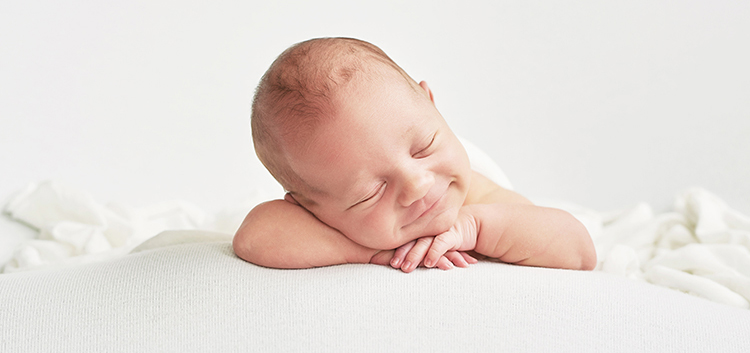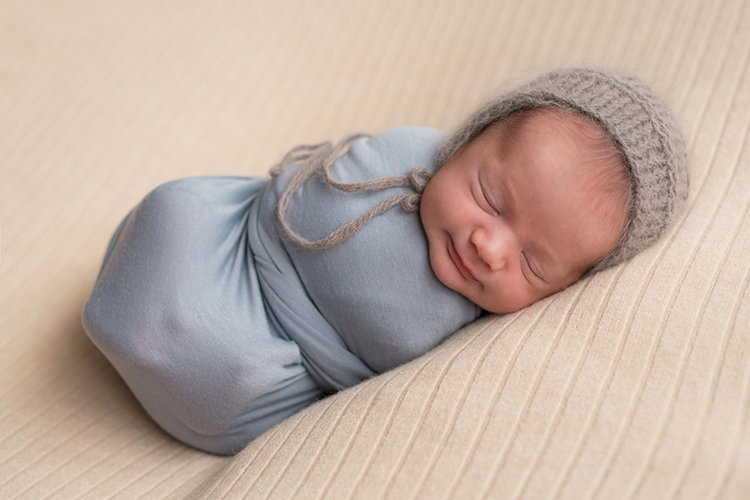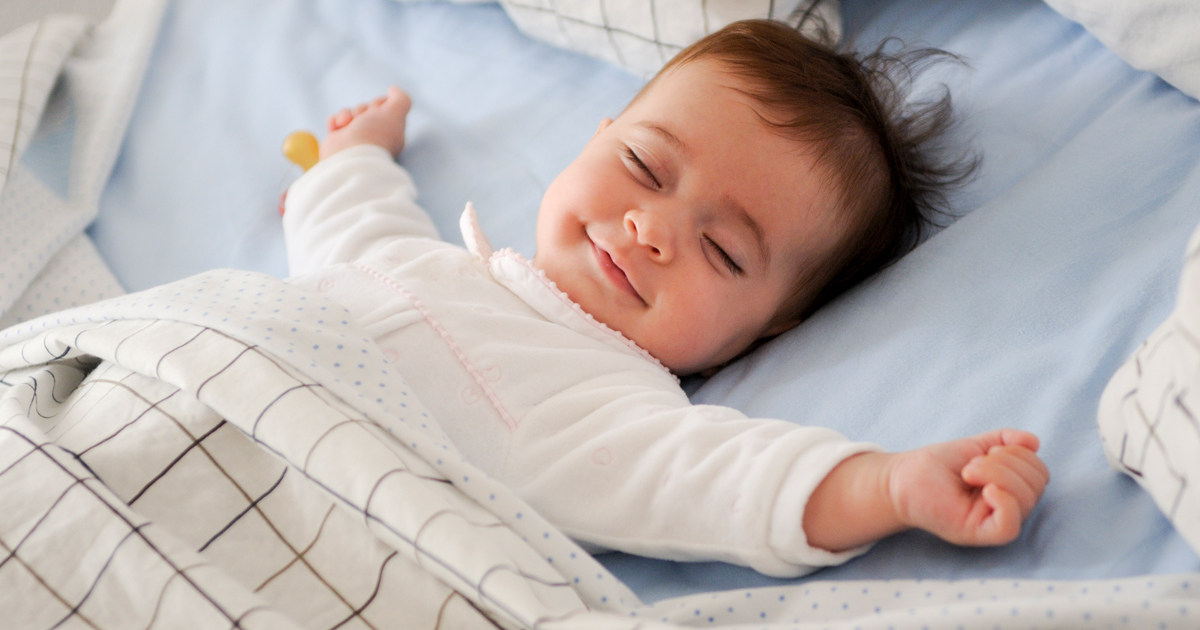You’ve just put your newborn to sleep and you see a twitch on his face changing into a lopsided smile or laugh, creating a charming moment for the wonder-stricken parents, who cannot resist smiling back at their little bundle of joy. The elders of the family usually attribute those ‘sleep smiles’ to ‘angelic smiles’ suggesting that when the babies see the angels that’s when they smile, this is most likely a myth because there is no scientific evidence to prove this true. But have you ever wondered what goes in the ‘baby world’ which makes the baby smile in a deep slumber? Let’s find out what science says about it.
Why do babies smile while sleeping?
Here are the main reasons why your little champ or princess is smiling even when they’re not in for the count.
#1 Reflex action

The huge milestone of the first smile of a baby, is simply a reflex action. Research reveals that these little grins can occur from very early on, even before birth and need no external stimulus. They smile simply because the body does it as a reflex, like suck1ng, grasping and kicking. So even when mommy is dropping kisses and if the baby just happens to smile then it’s not because he’s exhibiting the same warmth, yet.
#2 Passing gas
Another reason babies could smile is when the gas bubbles finally leave their tummies. Newborns tend to smile when passing gas.
#3 REM cycle sleep
When babies are in REM sleep cycle or active sleep they may go through certain physiological changes that initiate involuntary movement in the body and one of them could be smiling or laughing.
#4 Social smile
Between 6 to 8 weeks babies start to develop responses to interaction, which means you can coax a grin by tickling them or pulling silly faces. At this stage, their smiles are usually a genuine gesture of warmth to your attention.
#5 Emotions
Infants start expressing their emotions from early on with their facial expression and voice. As their interaction with the world increases so does their response rate and behavior. If you notice your baby smiling in the sleep he’s most probably processing some happy emotions in his sleep.
#6 Other medical causes
In rare cases, medical conditions like se1zure dis0rder, fits and c0nvulsions may cause unceasing laughter. If uncontrollable laughter is accompanied with weight loss, irregular sleep schedule and bouts of frequent irritability, it would be best to visit the doctor.
Why Do Babies Laugh While Sleeping?

- Hypnagogic or dream laughter: Dreams are most vivid during REM and this controls the muscles for smiling in the babies which evokes bursts of laughter during sleep.
- Adult attention: Toing and froing with the baby at a level where they can understand and making an intentional connection with them elicits laughter from them. Adult attention is like gold dust for the babies. They love adult attention and laughter is their kind payment.
- Happiness: Babies don’t chase happiness, they’re happy. Studies show that babies wake up in a good mood every day. There is no one happier than a milk drunk newborn, woozy and snoozy after a stomach full feed and a big ear to ear grin.
How to maintain a baby’s sleep cycle?
With a newborn baby, sleepless nights are not news. There is a sea of books written about sleep training for the babies, but with the strategic few sleep training methods it’s easier to get the baby on a good sleep schedule. It’s very common for infants to wake up in the middle of the night for a few sessions of feeding and nursing but with time it’s promised to get better. Before getting started with sleep training it is imperative to make sure that you’ve a night time routine in place.
- Regular schedule: Put the babies to bed at an early and consistent time each night. This will help their bodies to associate a ‘shutting time’ every night and establish a calm and regular night routine.
- Shush-pat technique: Since the little one is still trying to adjust to the environment outside the womb, prop the baby onto his side and recreate the baby whisper’s to gently put him to sleep in a safe environment.
- Low-key night time care routine: When the baby needs care or feed in the middle of the night, keep the environment restrained in lighting, voice and movement. This will prevent overstimulation of the baby and convey them the message that it’s time to sleep.
- Be a realistic parent: It’s easier to get bogged down by the exhaustion of the unplanned and sporadic sleep of the baby but remember to be patient and have realistic expectations from your energizer bunny. Snatch some pockets of sleep time for yourself from the baby’s sleeping pattern, because that might be the only rest you make for a while.
Conclusion
Dr A sues said,”Being person is a person no matter how small you are”
Smiling or laughing is an important developmental milestone. It’s an obvious indication that the child is growing physically and emotionally healthy. In most cases there is nothing to worry about, you can gush over your little honey bun smiling or laughing in their sleep.
But pay attention when any other unusual symptoms start showing along with the laughter, it’s usually a red flag for seeking medical attention. Smiling, kicking, squirming are responses that babies express to the external stimuli once they’re 6-8 weeks old. This helps the adults to start off by building a social and emotional connection with the babies.
That being said, it’s also important to remember that every child is different and so is developmental progress. If a child is not smiling or laughing then there is nothing worthy about it.

